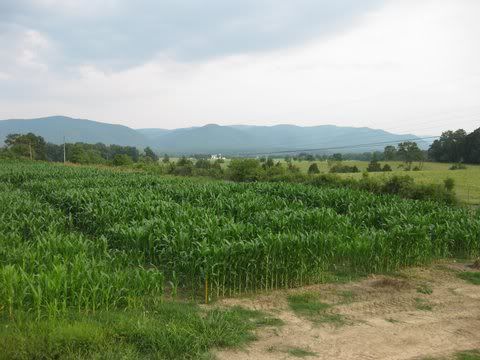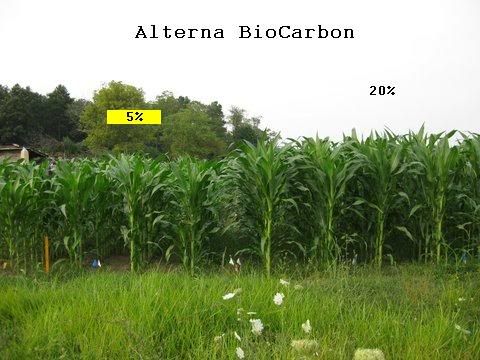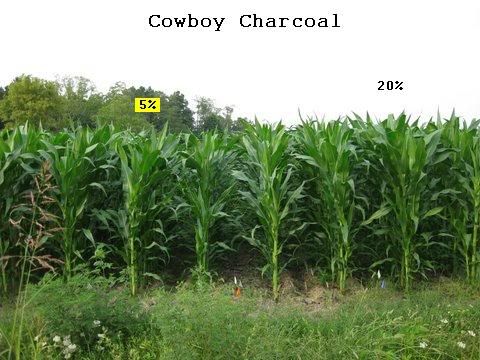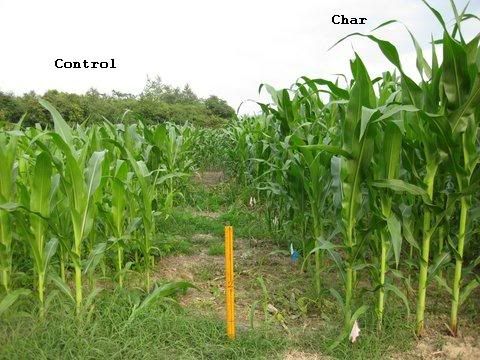Alterna Biocarbon and Cowboy Charcoal Virginia field trials '09
Field Trials;
I am field testing for the 09 corn season with JMU and consultation Dr. Hepperly at Rodale Institute.
Ten research priorities were identified at the IBI conference, The following priorities I hope to address:
• 1- Economy research/market research
• 2- plant+soil research depending on biochar
• 5- field trials
• 8- application to soil (depending on agricultural or other
systems/remediation`)
Planting date: June 24th.
Two split plots , which each are split into a 20% (27 tons/Ac) & 5% (7 tons/Ac) application rates,
All chars soaked in tarps for 1 month, all chars were mixed 1:2 by volume with finished poultry litter compost and roto-tilled to 5 inch depth.
3 treatment groups with 3 replications
Char+ Compost
Char+ Compost + soluble NPK (soaked in char)
MYC+Char+Compost ("Dr. Mike's" Mycorrhiza corn inoculent)
Charcoal #1: Alterna Energy Biocarbon
Charcoal #2: Cowboy Hardwood Lump Charcoal
Soil Testing:
Dr. Mike Amaranthus of Mycorrhiza Applications ( http://www.mycorrhiza.com/ ) has supplied his granular corn MYC , applied at planting, and lab support for harvest root analysis.
Dr. Kristine Nicoles of ARS, their head glomalin researcher, will also run soil test at Harvest
Lynn Rogers of Microbial Matrix will be testing for functional microbe groups
Total wet weight of corn biomass will be collected for each treatment group.
Much Thanks to:
James Madison University / I.S.A.T., Dr. Wayne Teal - for providing a student for work and help in publication.
Local farmers Keith Sheetz and Andy & Jack Dixon
Dr. Paul Hepperly of Rodale Institude in PA. for consultations and his sister study in cow-peas.
Special thanks to Ecotechnologies Group for funding both of our studies. http://www.ecotechnologies.
The soil carbon bond can lead to an integration of organic and commercial agriculture practices. Biochar is a tool for both, for organic to increase its already-sustainable credentials, for chemical agriculture to at least halt soil carbon mining and seriously reduce nutrient runoff. The carbon sequestration bond can lead to a marriage of the best practices from both systems of agriculture to build soil into a biologically vital synergistic organism.
I hope to demonstrate this in my field trials with Roundup-ready corn, with the consultation of the Rodale Institute. Soil test for the full spectrum of food web organisms should ferret out the affinity of BioChar with these organisms in the context of standard chemical agricultural practices, and at Rodale with organic practice.
Erich J. Knight
Eco Technologies Group Technical Adviser
University of California Riverside advisory board member
Shenandoah Gardens (Owner)
1047 Dave Barry Rd.
McGaheysville, VA. 22840
540 289 9750







